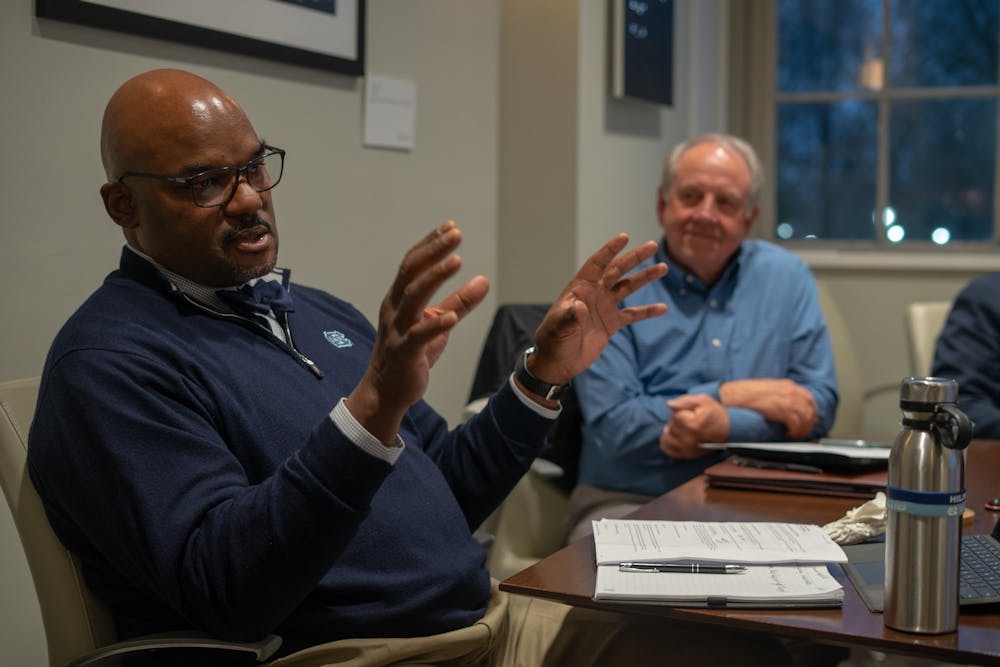Student-athlete mental health and faculty-athlete relationships — these were the main topics of discussion among members of the Faculty Athletics Committee in their Thursday meeting.
Student-athletes and faculty
Alex Mazer, Luke Buxton, Jake Lawler, Caroline Coelho and Kennedy Byrd, UNC students and founders of UNCUT, a nonprofit student-athlete storytelling platform, kicked off the conversation with a presentation on the relationships between athletes and faculty.
“We serve as an outlet for student-athletes to express themselves and vote on what they do outside of their sport, who they are as an entire person,” Mazer said.
Rita Balaban, a professor in the Department of Economics, and Dr. Daryhl Johnson II, a professor of surgery in the School of Medicine, participated in “Competing in the Classroom," the video UNCUT presented to the committee. It focused on effective communications between student-athletes and faculty.
“The genesis of this conversation is something that's been long overdue,” Lawler said. “I think the reason why this conversation is so important is really because of the representation, albeit some of the misrepresentation, of the relationship between student-athletes and faculty.”
Lawler said this relationship is coated in mystery and stigma, but that it can be better understood through continuous conversation on the subject.
“Change starts with us; it starts with the people in this room,” Lawler said.
Aimee McHale, a professor in the Public Health Leadership Program, asked about what kinds of interactions would be the most meaningful between faculty and student-athletes.




